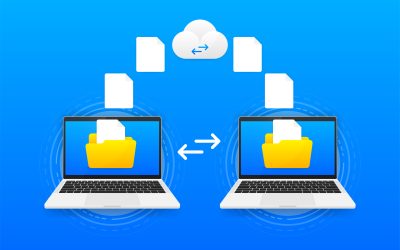The volume of data collected and stored is growing. Data mining transforms raw data into valuable insights. This intricate process involves the collection and analysis of data to uncover patterns and correlations, ultimately driving informed decision-making and strategic planning. With data mining services, businesses can gain access to expertise to leverage data for success. Companies that specialize in the field can help you discover and analyze patterns, trends, and extract valuable insights from your large, complex datasets.
How does Data Mining work?
Data mining is a powerful process that involves sorting through large data sets to identify and analyze patterns, trends, and noise, and pull actionable information from the information. From banking and insurance to education and retail, every industry can benefit from data mining. Retailers use the process to understand their customers better and tailor marketing strategies, promotions, and product offerings to specific segments for improved customer satisfaction and targeted marketing campaigns. Banks mine their data to detect fraudulent activity, while manufacturers use it to predict the lifespan of a product, predict maintenance, and maximize production.
8 Ways Data Mining contributes to Business Success
Mining data fuels business success in several ways:
- Competitive edge: Effective data mining helps businesses tap into their extensive datasets, revealing hidden patterns and valuable insights related to emerging market trends, customer preferences, and shifting consumer behavior. This competitive advantage enables businesses to stay ahead of rivals, innovate, and adjust strategies to meet evolving market needs, ultimately fostering business success.
Popular streaming service Netflix is the perfect example of a company that leverages data mining effectively to gain a competitive advantage. Netflix collects data on what users watch, when they watch it, how long they watch, what device they use, and even when they pause or rewind. They use data mining and machine learning algorithms to analyze user behavior and preferences and generate personalized recommendations for each user. Keeping users engaged leads to increased customer satisfaction and longer subscription retention.
- Improved decision-making: By analyzing large volumes of historical and real-time data, companies can gain valuable information about customer behavior, market trends, product performance, and operational efficiency. They can make informed decisions based on the insights derived from the information, leading to improved outcomes. Whether it’s optimizing marketing campaigns, refining product offerings, or enhancing customer experiences, data-driven decisions lead to better outcomes.
- Predictive analytics: Data mining enables predictive analytics, which helps businesses anticipate future trends and outcomes. This can be applied to demand forecasting, inventory management, and risk assessment, among other areas.
For example, e-commerce and technology giant Amazon relies heavily on data mining and predictive analytics to enhance its operations and customer experience. Analyzing user browsing and purchase history allows Amazon to make product recommendations. Data mining also enables them to predict demand for products and optimize inventory levels, helping to reduce storage costs and ensure that products are available when customers need them.
- Personalized marketing and sales efforts: Data mining helps businesses identify specific customer segments and target them with personalized marketing and sales efforts. By analyzing customer data, businesses can create targeted marketing campaigns, recommend relevant products or services, and optimize pricing and promotional strategies. This targeted approach enhances marketing and sales efforts, leading to higher conversion rates, increased sales, and improved business performance.
- Fraud detection and risk management: In various industries, such as insurance and finance, data mining helps assess and mitigate risks and plays a critical role in fraud detection. By analyzing transaction data, businesses can detect anomalies, and identify potential risks and suspicious activities promptly. They can then take steps to mitigate these issues, minimizing financial losses. Effective fraud detection and risk management contribute to maintaining a secure business environment, protecting assets, and ensuring business success.
- Healthcare improvement: In the healthcare industry, mining and analyzing patient data can help predict the likelihood of disease onset or progression. For instance, analyzing information in electronic health records (EHRs) and patient histories could identify risk factors and early symptoms of diseases such as diabetes, cancer, or heart disease. By spotting these patterns, healthcare professionals can intervene earlier, leading to more effective treatment and improved patient outcomes. Moreover, analyzing genetic data and clinical histories allows for creating a tailored treatment plan for each patient, maximizing the chances of successful outcomes.
- Process optimization: Data mining can uncover inefficiencies and bottlenecks in business processes. By optimizing these processes, companies can reduce costs, improve productivity, and enhance customer satisfaction. For example, to improve its supply chain efficiency, a retail company should collect vast amounts of data related to their supply chain operations, including procurement, inventory management, order fulfillment, and delivery. By mining this data, they can identify inefficiencies and bottlenecks, and take targeted actions to streamline their supply chain processes.
- Innovative product development: Data mining can support innovative product and service development. It enables businesses to identify opportunities, understand customer needs, optimize processes, and mitigate risks, all of which are critical for innovative and successful product and service development. By analyzing customer feedback and market trends, companies can create innovative solutions that meet customer needs and market demands.
Dealing with large datasets can be complex, as it requires specialized tools and algorithms to process and analyze them effectively. Also, data can come in various formats, including structured data (like databases), unstructured data (like text documents or social media posts), and semi-structured data (like XML or JSON). Handling diverse data types can add complexity to data mining. In addition to being potentially complex, data mining is an ongoing process. To adapt to changing market conditions, businesses should continuously analyze their data and adjust strategies.
Partnering with a business process outsourcing company that provides data mining solutions is the best way to extract valuable insights from your data. Choosing a company that has experience, expertise, and track record in your specific industry and prioritizes data security and compliance is crucial for business success.
Leverage the power of data-driven decision-making with our business process outsourcing solutions!




